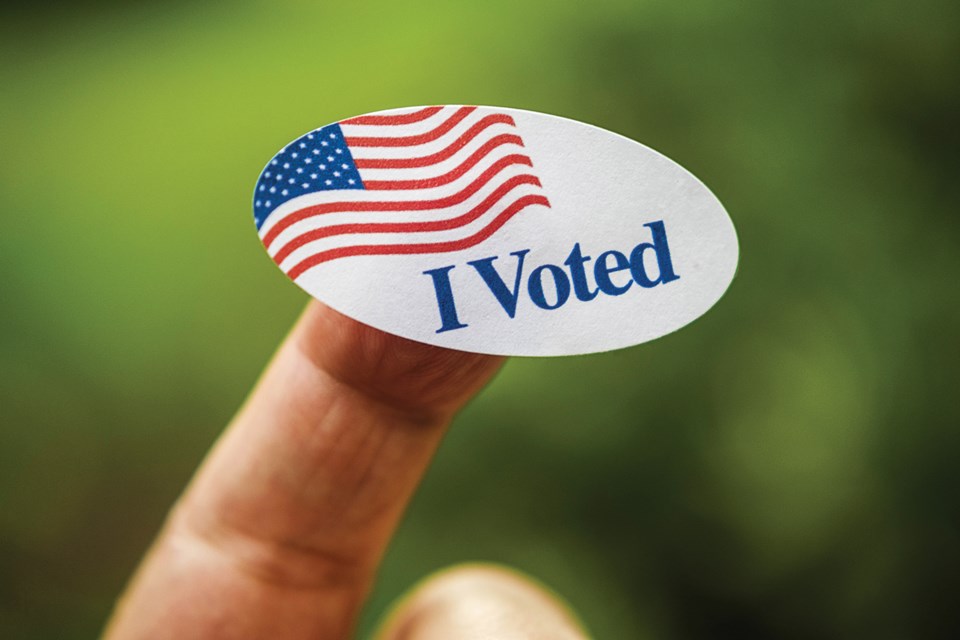With it now increasingly likely that the June Democratic primary for Arlington County Board will have a large enough field of candidates, Arlington election officials are gearing up for the likelihood of a first-of-its-kind ranked-choice election.
“We are working closely with the [Virginia] Department of Elections to make sure we have everything in place,” said Gretchen Reinemeyer, the county’s elections chief, at the Feb. 4 Electoral Board meeting.
Given the looming switch from winner-take-all to a ranked-choice format – and the fact the change will impact the County Board race but not others – “there will be a need for education and outreach,” Reinemeyer said.
Adding to the challenges: This is the one year in Arlington’s four-year election cycle in which two County Board seats are up. Meaning ranked-choice voting will be conducted differently than had it occurred in a year when just a single post was on the ballot.
How will it work in 2023? Voters in the County Board contest will have the ability (but not be required) to rank their choices for County Board up to three. When the votes of low-scoring candidates begin being eliminated and their votes reallocated as directed by voters, the first two candidates to reach 33 percent of the vote, plus one, will be deemed the winners.
(Yes, that was the simplified version. There are several additional twists and turns.)
Limiting the number of choices a voter can rank to three is due to limitations on current voting equipment, election officials said.
“Even if there are 10 candidates, you choose your top three,” Electoral Board chair Kim Phillip said.
For the time being, that’s the way it’s going to stay, Reinemeyer said.
“Changing voting equipment is costly, and [given supply issues] I’m not even sure it’s possible,” she said.
Even some of those directly responsible for oversight of elections acknowledged things might prove daunting the first time out.
“This is a different type of election,” new Arlington Electoral Board vice chairman Richard Samp said. “I find this fascinating, but particularly complicated.”
(It’s the General Assembly, State Board of Elections and Virginia Department of Elections that have put the rules in place.)
To help voters, both the county government and Virginia Department of Elections will conduct outreach and public-relations efforts, beginning in March or April, Reinemeyer said.
Arlington County Board members last December used enabling legislation patroned by Del. Patrick Hope (D-Arlington) to permit a ranked-choice-voting option for the County Board primary and general elections. Arlington is the first jurisdiction in Virginia to make the switch.
“We’ll have much to share with the rest of the commonwealth,” said Arlington Electoral Board secretary Scott McGeary, who added the General Assembly members will be keeping an eye on the Arlington experience before deciding whether to expand ranked-choice-voting options to offices beyond the governing bodies of cities and counties.
Both the Arlington County Democratic Committee and the Republican Party of Virginia have used variations of ranked-choice voting in some nominating contests through the years, but those were run by the parties, not the state government.



